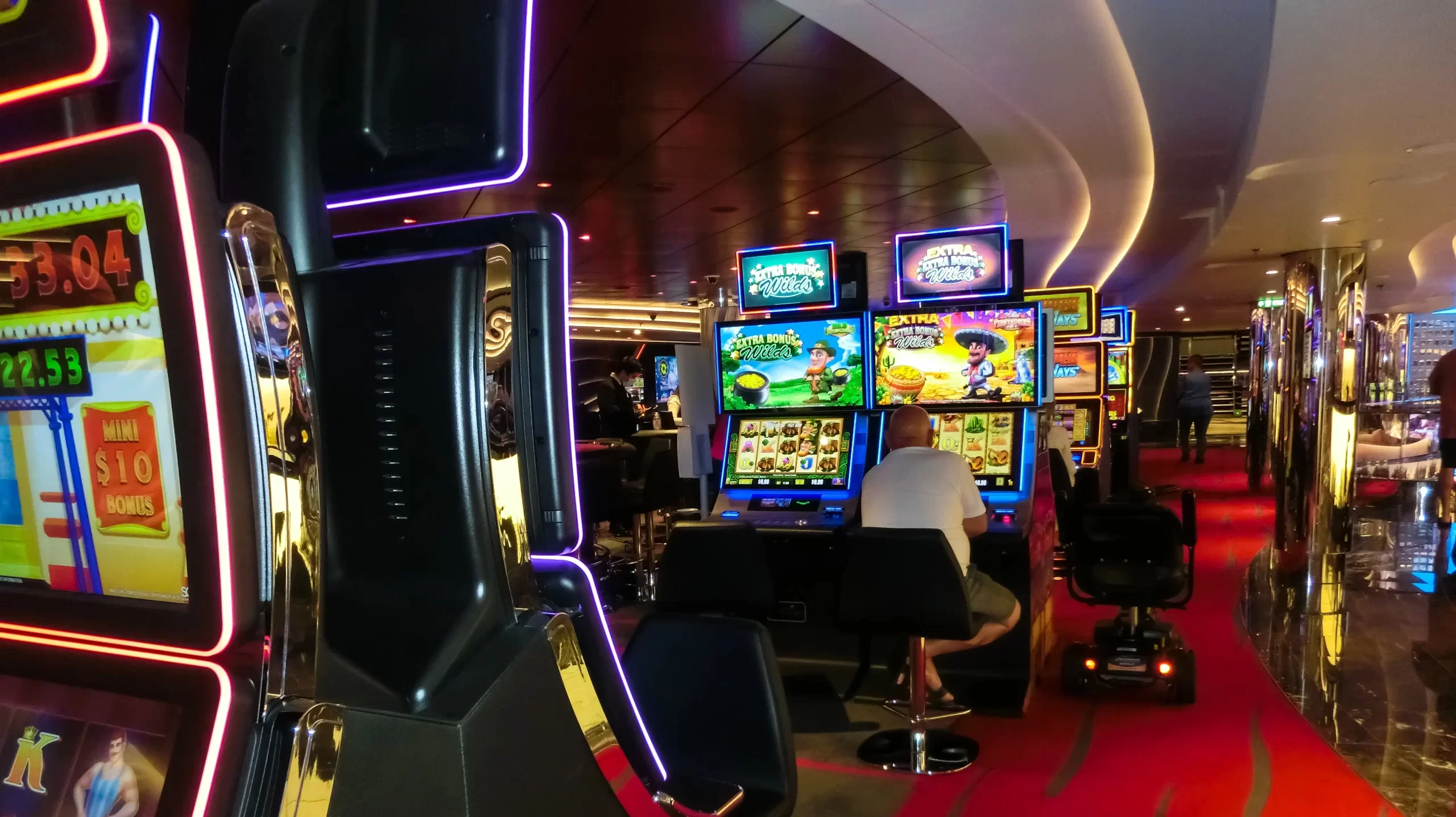Gambling
Opinion | There’s one way to solve Alabama’s illegal gambling issue: we already have it

Exchanges on social media over political issues are rarely productive.
For the overwhelming majority of them, it is simply two people trying to out hot-take each other repeatedly. There is typically nothing substantive or lasting about the exchanges, and I’m not sure there has ever been a single mind changed about anything.
That said, on occasion, an exchange can lead people to a better understanding of a complicated topic, if they choose to do the off-social media research on that topic. Or follow up with an email or message.
That was the case earlier this week, when I responded to a post from the Alabama Policy Institute concerning gambling.
API’s hot take, which came in response to an opinion piece I wrote about the prevalence of illegal gambling currently taking place in Alabama, was this: “The answer to curtailing illegal gambling isn’t legalizing or expanding gambling. The answer is to enforce the law.”
My hot-take reply was this: “When you say something like this, it should be apparent that you’re only assisting illegal operators and out-of-state interests. Because it makes no sense otherwise. The laws are a mess and wholly inadequate to address the problems. Ask anyone with a badge.”
Ooooohhhh. Sick burn.
Actually, it wasn’t. The whole thing was sort of pointless on both sides because the gambling issue in this state is never going to be explained in a handful of characters on a website built for people with attention issues.
But it did lead to something fairly interesting and, I believe, productive: A few people, including a couple of lawmakers, reached out because they wanted to better understand what I was talking about, both in the quoted tweet above and in another in which I referenced that an “illegal casino” had been twice raided by the attorney general’s office and was open again today.
I’m not going to get into who those lawmakers are, because it’s not important and our conversation was private. But I am going to tell you what I told them, so you, too, will know that when someone – or some entity – makes a bumper sticker-sized statement about gambling in this state, they are either attempting to mislead you or they lack a basic understanding of the issue.
Because “enforce the laws” in this case is dumb.
I’m sorry, but it is. And it’s a little offensive to the law enforcement officials who have attempted to do just that for years.
The problem is the laws are inadequate in this state to properly curtail illegal gambling. Because almost all of the gambling laws violations are misdemeanors. And on top of that, there are numerous, numerous gray areas within the laws that make it wholly unclear if “illegal gambling” is, in fact, “illegal gambling.”
This is why our AG has attempted to curtail what he believes is illegal gambling in a number of locations by suing the casinos in civil court for public nuisance violations. Let me tell you, a pretty clear sign that your gambling laws are inadequate is that your top law enforcement official isn’t using them to police gambling.
The reason for that is that the punishments are deterring no one. These gambling establishments are raking in BILLIONS of dollars annually. That’s right. Billions.
You really think they won’t trade a misdemeanor conviction and a fine of a few hundred bucks in exchange for those sorts of profits?
So, of course, the response to this is an equally simple one, and API made it: Change the laws. Make them tougher.
So easy. So simple. Right?
Oh sure. Because in 40 years of this fight over gambling, no one ever thought about just changing the laws.
Or maybe it’s that when someone did suggest changing the laws, someone else asked which laws.
The fact is Alabama has really, really screwed up its gambling laws by taking a half in, half out approach to literally every gambling issue.
The state wanted dog tracks, but not other Class III gaming. The state wanted bingo, but maybe not electronic bingo. The state recognized the Poarch Band of Creek Indians, but didn’t want to negotiate a compact with them. That doesn’t cover the multitude of county constitutional amendments that may or may not allow for electronic bingo. Nor does it cover the completely made up Alabama Supreme Court opinion – written by a guy who’s currently being paid to work against gambling interests – that defined bingo completely differently than the federal government defines it.
Add all of that up and you have this weird soup of interests that are pushing and pulling in a variety of directions. The Poarch Creeks, of course, are looking out for their people. The folks in counties where dog tracks and electronic bingo casinos prop up charities and pay a lot of local tax bills are fighting for their interests. The anti-gambling groups are trying to make their money. The churches are pulling in a nice chunk of cash from both opposing gambling and operating bingo games (and raffles).
You want to know how screwed up it all is?
Right now, there are cities and counties in this state that are selling casino business licenses to casinos that the AG has raided and called illegal. And everyone involved legitimately believes they’re right. And in some cases, state judges have issued opinions backing the casinos’ right to operate.
Do you really believe that the lawmakers who represent those areas, where the casinos are paying tax dollars and casino owners are chipping in on campaigns, are going to vote for new constitutional amendments? Or they’re going to vote to overturn their current amendments? Or they’re going to vote to put local businesses and supporters out of business?
Please.
The only way to get this changed is to do it exactly the way Reps. Andy Whitt, Sam Jones, Chris Blackshear and others have done it – by offering a very lucrative carrot with that bigger stick. The comprehensive bill passed by the House, which gives Alabamians the right to vote on casinos, a lottery and sports wagering, along with increased penalties for illegal gambling and tougher enforcement, is a smart, well researched, well crafted piece of legislation and it’s the only chance we’ll ever have to solve this problem.
And anyone who tells you otherwise is either trying to prop up illegal gambling or out-of-state interests, or they don’t know what they’re talking about.








